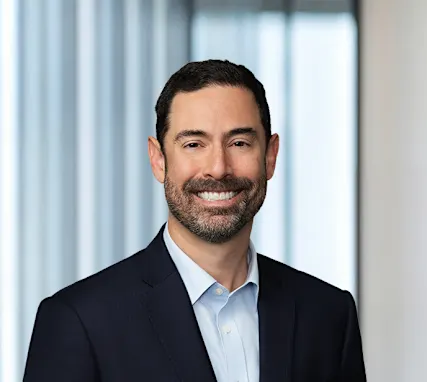Trends
1. Disclosures
The SEC’s enforcement activity continues to highlight the agency’s focus on accurate disclosures by public companies. In 2023, the SEC brought enforcement actions against public companies for disclosure deficiencies that resulted in a wide range of charges, including fraud, accounting misstatements, and deficient controls. Actions included charges against Fluor Corporation, a global construction company, for accounting errors that caused it to materially overstate its earnings; charges against Newell Brands Inc., a consumer products company, for misleading investors about its core sales growth; and charges against electric vehicle companies XL Fleet, Canoo Inc., Kandi Technologies Group, Inc., and Hyzon Motors, Inc. for making materially misleading statements regarding revenue projections, sales, or product launches.
Notably, in a November 2023 talk SEC chairperson Gary Gensler gave during DC FinTech Week, he described U.S. securities laws as having been painted by Congress with a “broad brush” in order to protect the investing public by ensuring that information material to investor decisions is made clear and available in public disclosures. Such disclosures, Gensler stated, promote trust, which he described as foundational to the existence of capital markets, and facilitate equitable market participation.
2. ESG
Environmental, social and governance (ESG) issues continue to be an important focus for investors and the SEC. The SEC’s approach to ESG enforcement has evolved in recent years. In March 2022, the SEC proposed amendments to existing rules requiring additional climate-related disclosures for publicly traded companies. That same month, the SEC released its 2022 exam priorities, in which ESG was listed as its second-highest priority.
Since then, enforcement actions on ESG issues have started to make headlines and reflect the Commission’s desire to hold firms accountable for ESG-related statements that do not accurately reflect their investment process. On September 23, 2023, the SEC announced a $25 million settlement with one of the world’s leading asset management companies for misstatements regarding ESG investments and greenwashing. On September 20, 2023, the Commission announced a new rule that amended the Investment Company Act “Names Rule” to include ESG and sustainable funds. The rule requires that ESG funds’ investments must be in 80% alignment with the stated goals of the fund, a move that could be problematic for the viability of ESG funds.
More recent SEC actions have been more of a mixed bag. The SEC’s October 2023 release of exam priorities for 2024 notably omits ESG where it had been front and center for 2022 and 2023. It is possible that the SEC’s omission of ESG from 2024 audit priorities reflects the fact that the Commission is working to finalize ESG rules before focusing on enforcement. Indeed, Gensler recently noted that the new final rule on climate-related disclosure standards is not likely to be completed until 2024.
Notwithstanding the apparent easing off the gas pedal, ESG continues to be a highly-watched issue that remains front of mind for the Commission and certainly for investors. Public companies taking positions on ESG and funds with stated ESG strategies should remain diligent in vetting public statements and disclosure materials to avoid running afoul of the evolving body of ESG regulations and enforcement.
3. Continued focus on individual accountability
The SEC continues to reiterate that “[i]ndividual accountability remains a pillar of [its] enforcement program.” The SEC’s fiscal year 2023 enforcement results highlight the agency’s focus on holding individuals accountable. Consistent with prior years, approximately two-thirds of the SEC’s enforcement actions in FY 23 involved charges against individuals. The SEC also barred 133 individuals from serving as officers or directors of public companies – a high water mark for the past decade.
These statistics are consistent with staff comments as well. In July 2023, Paul Munter, the SEC’s chief accountant, released a statement reminding accounting firms and individual accountants of their independent obligations when auditing crypto firms and putting them on notice of heightened enforcement in this area.
A string of recent, high-profile enforcement actions, including SolarWinds, Binance, FTX, and McDonald’s, further highlight the SEC’s ongoing focus on individual liability. In addition to the SolarWinds and Binance cases discussed below, the SEC also continues to target both high- and low-profile individuals, often in coordination with a corporate resolution. Earlier this year, for example, the former McDonald’s CEO agreed to a $400,000 civil penalty and five-year officer or director bar to resolve allegations that he violated the anti-fraud provisions of the Securities Act of 1933 and Securities Exchange Act of 1934. McDonald’s terminated the former CEO without cause after he engaged in a personal relationship with another employee in violation of company policy. The SEC found that the former CEO failed to disclose similar misconduct to the company, which would have impacted McDonald’s disclosure to investors about his termination and compensation.
While several of these matters involved chief executive officers, the SEC also continues to target other executives, including chief financial officers and chief information officers. Thus, it is critical that individual executives and auditors remain independent and on alert for continued enforcement initiatives.
4. Cryptocurrency ETFs
On October 19, 2023, the first U.S. Bitcoin futures-based exchange-traded fund (ETF) began trading, leading to a surge in the value of Bitcoin, which is the world’s largest cryptocurrency by market capitalization. The surge reflected the widely-held view in the digital assets space that cryptocurrency ETFs could provide a vehicle to boost investment in digital assets by facilitating everyday investors’ access to this complex area by allowing them to invest in such assets through a regular brokerage account or pension fund, rather than requiring them to buy and store the digital assets independently.
To date, the SEC has given the green light to ETFs that own futures contracts tied to the price of Bitcoin, but it has so far denied applications for spot cryptocurrency ETFs, which would directly purchase and hold cryptocurrency. Nevertheless, many in the industry remain hopeful that SEC approval of spot crypto ETFs is rapidly approaching. On December 4, 2023, leading asset management firm filed an amended S-1 filing with the SEC for its proposed spot Bitcoin ETF, as did Bitwise, a digital asset service provider, which could indicate the SEC’s engagement in moving the applications forward.
Key cases
1. SolarWinds
On October 30, 2023, the SEC charged the Austin, Texas-based software company SolarWinds and its chief information security officer (CISO) with fraud and internal control failures relating to the company’s handling of allegedly known cybersecurity risks and vulnerabilities. The SEC’s complaint, filed in the Southern District of New York, alleges that SolarWinds and its CISO violated the antifraud provisions of the Securities Act of 1933 and of the Securities Exchange Act of 1934; SolarWinds violated reporting and internal controls provisions of the Securities Exchange Act; and its CISO aided and abetted the company’s violations. The SEC seeks permanent injunctive relief for these violations, disgorgement with prejudgment interest, the imposition of civil penalties, and an officer and director bar against the company’s CISO.
Specifically, the SEC alleges that, from at least its October 2018 initial public offering through at least its December 2020 announcement that it was the target of a broad-reaching cyberattack spanning nearly two years, SolarWinds and its CISO defrauded investors by overstating SolarWinds’ cybersecurity practices while purposefully understating or failing to disclose ongoing risks to investors in its filings with the SEC during this period by disclosing only “generic and hypothetical” risks, when in fact the company was aware of its cybersecurity exposure, but ignored repeated red flags about its cyber risks due to internal control failures and/or actively concealed an ongoing, live cyberbreach.
The SEC’s complaint further alleges that the CISO was fully aware of SolarWinds’ cybersecurity risks and vulnerabilities but failed to address or sufficiently escalate these issues. The company partially informed the SEC of the ongoing attack, dubbed “SUNBURST,” in an incomplete disclosure (Form 8-K filing) filed on December 14, 2020. By its failures to disclose the company’s cyber control deficiencies, SolarWinds and its CISO withheld accurate material information from its investors, according to the SEC.
The action reinforces the SEC’s focus on individual liability, adequate investor disclosure, timely regulatory notice, and the provision of full and complete information in regulatory filings.
2. Binance
On November 21, 2023, in the Western District of Washington, Binance Holdings Ltd. (Binance), the world’s largest cryptocurrency exchange, and its founder and CEO, Changpeng Zhao, pleaded guilty to violations of the Bank Secrecy Act (BSA) and several other felony criminal violations. As part of the settlement, one of the largest corporate resolutions ever, Binance agreed to forfeit $2.5 billion and to pay a criminal fine of $1.8 billion, for a total monetary penalty of over $4.3 billion payable to the U.S. Department of Justice (DOJ). Zhao waived indictment and pled guilty to failing to maintain an effective anti-money laundering (AML) program in violation of the BSA, agreed to pay a $50 million fine, and stepped down from his role as Binance’s CEO. Zhao faces a prison sentence of up to 18 months. As part of its plea agreement, Binance has agreed to retain an independent compliance monitor for three years and to enhance its AML and sanctions compliance programs.
Binance and Zhao have also separately reached agreements with the U.S. Commodity Futures Trading Commission, the Financial Crimes Enforcement Network, and the Office of Foreign Asset Control. The DOJ will credit approximately $1.8 billion toward those resolutions. Notably absent from the settlement with Binance and Zhao was the SEC, which filed a 13-claim suit in June 2023 alleging that Zhao and Binance operated an illegal securities exchange.
The SEC’s charges against Zhao and Binance bolstered the claims in a newly filed proposed class action suit against soccer player Cristiano Ronaldo. The lawsuit, filed on November 28, 2023, in the Southern District of Florida, alleges that Ronaldo’s promotion of Binance on social media and through traditional advertising violated anti-fraud provisions of federal securities laws and that Ronaldo participated in an unregistered offer and sale of securities.
3. Former FTX CEO Samuel Bankman-Fried
In December 2022, the DOJ charged former FTX CEO Samuel Bankman-Fried with conspiracy to commit wire fraud, actual wire fraud, conspiracy to commit commodities fraud, conspiracy to commit securities fraud, and conspiracy to commit money laundering. The DOJ claimed that Bankman-Fried funneled billions of dollars of customer funds deposited with FTX, Bankman-Fried’s crypto exchange, to Alameda Research – Bankman-Fried’s privately held crypto hedge fund. The DOJ alleged that Bankman-Fried used the money for investments, political donations, and lavish personal purchases. FTX collapsed in November 2022, leaving more than 1 million customers unable to access their deposits.
Bankman-Fried’s trial commenced in October 2023. During the trial, three former FTX and Alameda executives took the stand and testified that Bankman-Fried directed them to move funds from FTX to Alameda. Bankman-Fried testified that he believed in good faith that FTX could loan funds to Alameda. He further tried to convince the jury that his lack of experience caused FTX’s collapse, not any fraudulent activity.
On November 2, 2023, after a nearly three-week trial and deliberating for just four hours, a jury in the Southern District of New York found Bankman-Fried guilty on all seven counts he faced. Bankman-Fried is set to be sentenced on March 28, 2024 and faces the possibility of decades in prison.
The FTX/Bankman-Fried saga highlights the need for digital asset investors to take a hard look at the entities through which they choose to invest in, transact in, or store digital assets. Important questions to ask are how customer funds are held, what steps the entity has taken to combat and prevent fraud and other financial misconduct, and what the entity’s approach is to regulatory compliance.
4. Pending challenge to the SEC’s civil enforcement authority
On November 29, 2023, the Supreme Court heard arguments in SEC v. Jarkesy, a case challenging the SEC’s enforcement powers. Although the case presents three administrative law questions, the Court focused almost exclusively on the Fifth Circuit’s conclusion – defended by Jarkesy – that the SEC’s in-house administrative enforcement proceedings seeking civil penalties violate the Seventh Amendment. The Court’s decision later this term could significantly impact the SEC’s enforcement program.


